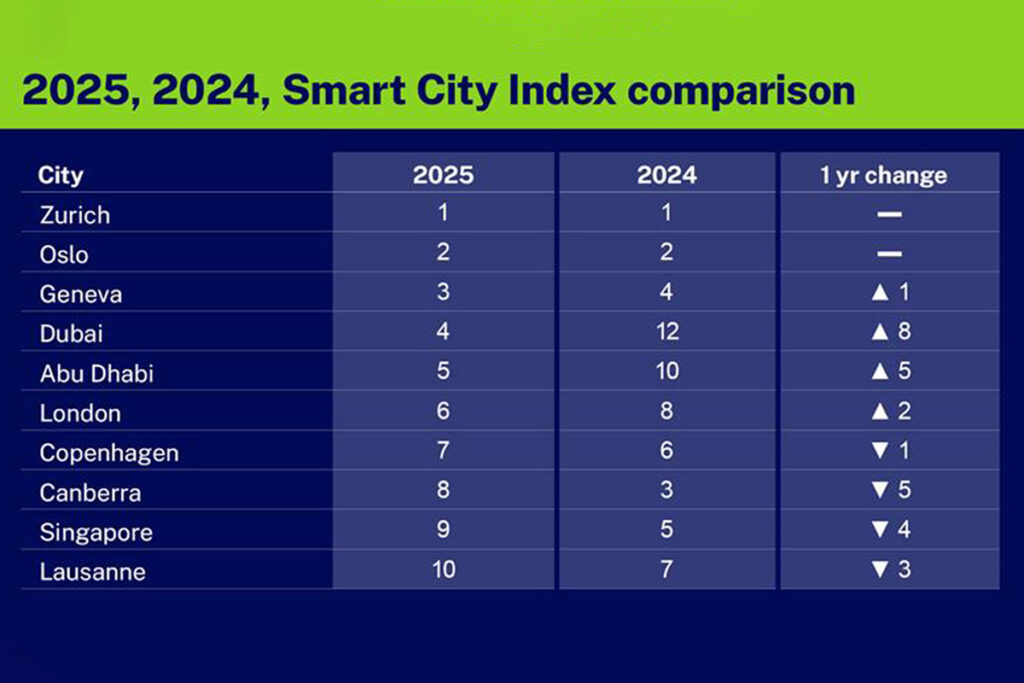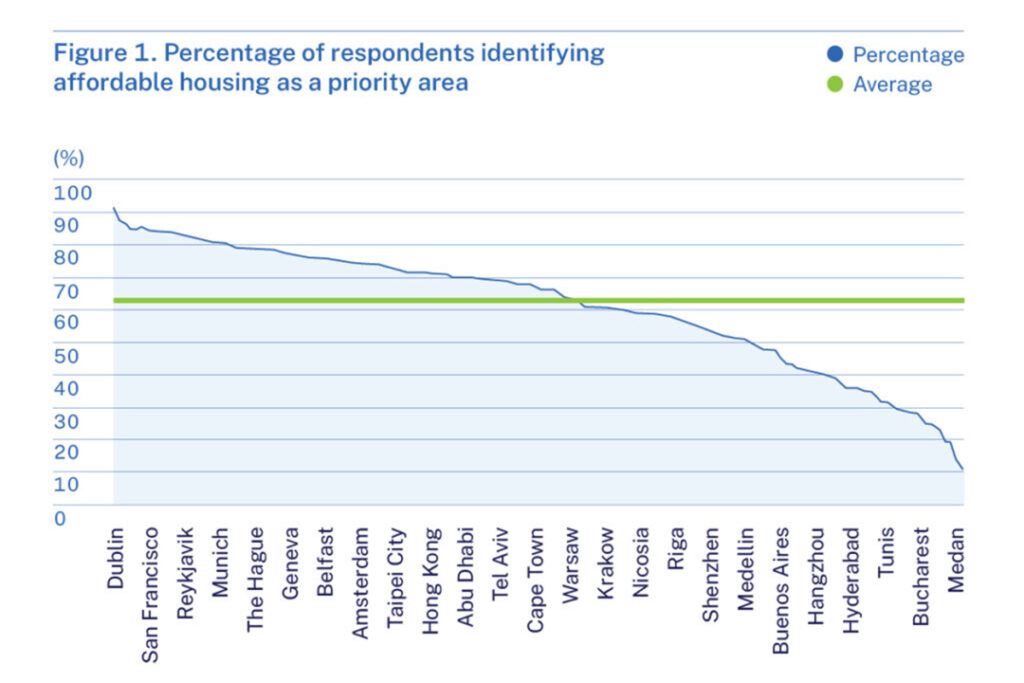Dubai and Abu Dhabi ranked in the top 5 smart cities in the IMD 2025 index. The two UAE cities made it to the top 10 smart city index (SCI) of IMD for the first time. The index ranked Zurich first overall, followed by Oslo and Geneva.
Dubai, which scored 82.8/100 on medical services and 83.4/100 for green spaces, was ranked fourth, while Abu Dhabi, which scored 84.7/100 for medical services provision and 83.8/100 for satisfactory green spaces, was ranked fifth.

The Index, now in its sixth year, is the tool that the World Competitiveness Center (WCC) – IMD’s competitiveness powerhouse – uses to assess how cities balance various dimensions, ranging from jobs and housing to environmental concerns and inclusiveness.
WCC Chief Economist Christos Cabolis said the top 10 demonstrate that smart cities succeed when they prioritise livability, sustainability, and governance, using technology not as a goal but as a tool to empower residents and address local challenges.
New entrants to the index this year were AlUla in Saudi Arabia, Astana (formerly Nur Sultan) in Kazakhstan, Caracas in Venezuela, Kuwait City in Kuwait, Manama in Bahrain, and San Juan in Puerto Rico.
“The top three cities are able to provide all the amenities citizens require for a good quality of life while not suffering from diseconomies of scale such as congestion caused by public transport, and pollution,” said William Milner, Associate Director of the WCC.
“They have obtained a somewhat exceptional status thanks to their size, but also their niche economies – oil in the case of Norway, and high quality and high value-added manufacturing exports in the case of Switzerland,” he said.
Milner said smaller, more independent economies could also prove more protected in the Trump trade war because they have goods that are not highly replaceable in the short term – the knowledge needed would take a generation.
WCC said making housing more affordable is the top priority for most of the respondents of the survey generating the 2025 IMD Smart City Index.
“Access to housing is a global issue, driven by three major factors: population moves and immigration reducing the supply of affordable housing, overall price increases, and increasing prices of certain commodities,” said WCC Director Arturo Bris.

The 2025 SCI report also touched upon how US President Trump’s tariffs on steel (and potentially lumber) are expected to increase development costs, putting further stress on an already-constrained housing supply.
The housing crisis is cutting across geographical divides, felt in cities as diverse as Dublin, Vancouver, and Dubai, the report said.
In these cities, between 80-90 percent of the 2025 SCI survey respondents expressed concern over the affordability of housing – saying it was a priority area in their city, it said.
“As we move into a new geopolitical order, cities will play a much more important role than countries,” Bris said.
“We have moved into a fragmented economy and major urban areas will be the center of all economic activities in the coming years,” he added.








